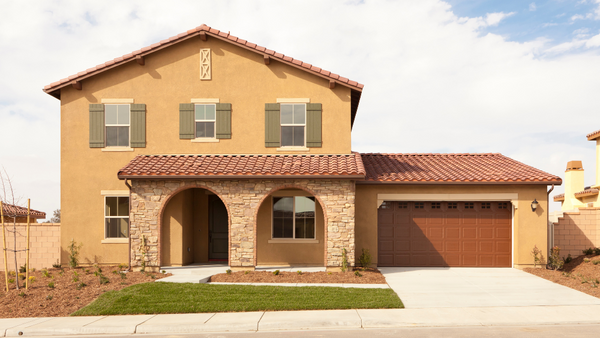In the world of real estate investing there are many areas where you can make money. Some investors do a little of everything while many zero-in on specific niches in the industry. One of these niches that can turn a substantial profit is investing in commercial real estate – but which type do you choose?
If you have the capital, commercial real estate can provide you with a variety of different types of opportunities. From local strip malls and small apartment buildings to skyscrapers and shopping malls the space has room for real estate investors with a range of experience and cash.
When getting involved in commercial real estate, many investors zero-in on a specific niche that they can become experts in. Afterall, the retail property market is vastly different from the market for industrial spaces. If you can become knowledgeable in a certain kind of property and the market for it you can make more informed investments and make more money.
What Is Commercial Real Estate?
The term commercial real estate refers to property that is generally occupied by businesses. A commercial property can be an office or it could be a storefront. It could be a small office building or a skyscraper with thousands of offices. It could also be a warehouse or an amusement park. Commercial real estate investors can build their own properties or purchase existing ones and make improvements to increase occupancy and retain tenants.
Investing in commercial real estate is lucrative for investors but requires much more initial capital to get started. Generally investors get started in residential real estate because it is lower cost and lower risk and then move towards commercial real estate as they grow.
Many of the larger scale commercial properties are owned and managed by real estate management firms rather than sole investors because of the workload required to manage and maintain them.
Within commercial real estate there are five general categories most properties fall into. Each type of commercial property has its own market as well as its own unique pros and cons.

Types of Commercial Properties
There are a range of commercial property types you should understand as a real estate investor. Here are the major ones.
Offices
The most common type of commercial real estate property is office space. Office space exists in every town or city big or small. Office space is an incredibly diverse type of property and can range from a small single tenant building in the suburbs to a 60 story skyscraper in a big city. Office space is often broken down into sub-categories to better define what kind of space it is.
Class A properties are generally large-scale office spaces that are new or newly refurbished and owned by a real estate management firm rather than an individual investor. Big skyscrapers and buildings in easily accessible areas with lots of amenities are generally considered Class A properties. These buildings are highly sought after and can bring in a lot of money as well as cost a lot of money to purchase or build. Most of these properties are located in big cities in active business areas.
Class B properties tend to be older buildings that don’t require extensive repairs but do require capital investment. This kind of office space is a big target for commercial real estate investors because buildings are usually well-maintained and don’t require a ton of updates and repairs. These properties usually don’t have a ton of issues with vacancies but aren’t located in the amenity-rich areas of big cities like Class A properties are.
Class C properties are redevelopment properties and require the most physical work. A Class C office would usually be in an area that isn’t ideally located and experiences higher vacancy rates. These properties usually require significant capital investment to make repairs and upgrades that will attract tenants and make the structure more attractive. An example of a Class C property would be a dilapidated building with persistent vacancies. These properties can be turned around but will require a big investment and a lot of elbow grease to attract tenants.
Multi-Family
Though it may seem like it belongs in the residential category, multi-family residential buildings are often considered commercial real estate properties. If a multi-family building has two or three units it is generally considered residential while any building with four or more units is considered a commercial space. Once a residential building has more than four tenants it is run like a business usually with some kind of management.
Commercial multi-family properties often include larger apartment complexes and high rises in big cities. Multi-family property is the natural bridge between the world of residential investment and commercial investment. Many investors start out with smaller residential properties and grow to acquire larger commercial multi-family properties as their capital increases. From there jumping into office space investment is a natural progression.
Retail
When you think of commercial property you probably think of retail space first. Retail property refers to any kind of storefront or complex of storefronts. This can range from a tiny strip mall in a rural area to a multi-story shopping center. Retail doesn't just include stores, also considered retail are things like restaurants and banks.
Smaller retail properties are generally strip malls that feature several smaller storefronts for local businesses like pharmacies, salons and chinese food restaurants. These spaces can accommodate many storefronts or only a couple. This kind of retail space is the easiest to get in on as an investor because the cost is much lower than investing in a mall or power center.
After strip malls and shopping centers there are community retail centers. These spaces are larger than a strip mall and often include necessities for the community like grocery stores. These spaces often have one or two larger storefronts and many smaller spaces to accommodate restaurants and smaller stores.
Larger retail spaces are malls and power centers which can range anywhere from 40,000 to 2 million square feet. These large scale properties are generally built and managed by a real estate management company and are costly to purchase and maintain, but generate significant profit. These large scale spaces are often anchored by one or more big box chains like Walmart, Target or Best Buy. The recognizable anchor stores are a reliable way to generate constant traffic to a retail center that can help attract and retain other tenants.
Try Invelo for Real Estate Investing
If you are currently buying investment property, whether flipping or renting, or if you are thinking of becoming a real estate investor, you're going to need a tool to manage prospects, market to leads and convert deals. There are many tools available for this, but very few address the four key aspects of real estate investing:
- Finding Prospects - Use our built-in list builder with over 150 million property records to find target prospects that meet your specific criteria. Select from dozens of data points to optimize your list.
- Marketing to Leads - Use built-in marketing campaigns to send direct mail, ringless voicemail, email, sms and more. Setup filter criteria to automatically find new prospects and add them to campaigns as they get added to your database.
- Manage and Convert Opportunities - Track every step of the deal lifecycle including skip tracing to find better contact information, adding notes and setting tasks so you never miss an opportunity to close a deal.
On top of that, Invelo is unique because it has intelligent automation and built-in education. There is no reason to reinvent the wheel. Tons of investors have already figured out the best practices for finding, marketing, contacting, negotiating and closing real estate deals. Invelo has integrated all of this learning in to educational training and automation so you can "set it and forget it".
Invelo has a forever free account -- try it instantly and see what Invelo can do for you.
Special Purpose
There are many kinds of retail spaces that are created for a specific use and cannot be adapted to accommodate anything else. These spaces are considered special purpose. These properties can include things like car washes and hotels. If you build a car wash the property will be a car wash until the structure is demolished – you can’t adapt it for any other use easily or without significant investment.
The travel and hospitality industry occupies a big portion of the special purpose space with things like hotels, amusement parks and airports. Each of these properties serves a different and highly specific purpose.
Additionally, mixed-use spaces are also considered special purposes. These are generally properties that combine retail and residential space like a city building with stores on the first floor and apartments above it.
Industrial
Another common kind of commercial property is an industrial space. Industrial spaces can be a variety of sizes and serve a variety of purposes ranging from simple warehouses to distribution centers and manufacturing facilities. Industrial spaces tend to be larger and built to certain specifications to accommodate machinery and frequent deliveries.
The flex warehouse is usually the most versatile industrial space. These warehouses are large open spaces with office space on site. These can be adapted easily for a variety of different businesses serving different industries.
Heavy manufacturing buildings tend to be more of a special purpose space and are designed with large specialized equipment in mind. Light assembly spaces are specialized but can still be easily reconfigured to accommodate a new tenant.
Industrial spaces are common investment opportunities because they can retain specialized tenants on a long term basis.
Final Thoughts
Investing in commercial real estate is a smart move if you have a good deal of cash on hand. To make the most money choose a specific type of investment property and get to know the national and local market so you make the best decision possible. Maybe after COVID investing in commercial office space isn’t the best use of your money – but maybe investing in industrial real estate is. Each type of commercial real estate has a completely independent market attached and requires a wise investor to master.






